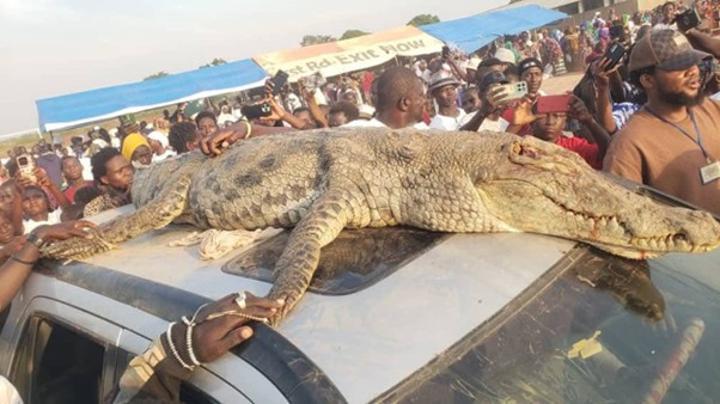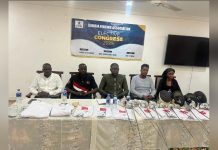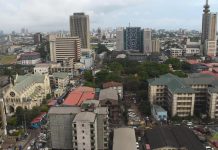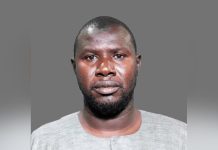Africa-Press – Gambia. President Adama Barrow’s visit to Sandu Kuraw during the ongoing Meet the People’s Tour has generated widespread controversy after reports emerged that a crocodile was killed and presented to him as a gift by members of the Gambia Hunters Association.
The gesture has drawn sharp criticism from rights groups, including the Edward Francis Small Centre for Rights and Justice (EFSCRJ) and Their Voice Must Be Heard (TVMBH), who condemned it as unlawful and harmful to conservation efforts.
The organisations argued that the killing of the crocodile violates the Wildlife Conservation Act of 1977, as well as international treaties such as the Convention on Biological Diversity (CBD) and the Convention on International Trade in Endangered Species (CITES). EFSCRJ called on President Barrow to reject the gift and urged authorities to investigate and prosecute all those involved in both the crocodile incident and a similar episode in 2023 involving a hippopotamus.
In response to the outrage, the National People’s Party (NPP) dismissed the reports as “misleading.” According to the party, although hunters brought a crocodile to the venue, they were told to leave before the President’s arrival due to security protocols. The NPP insisted that President Barrow remains committed to protecting wildlife and urged the public to refrain from circulating unverified information.
Civil society organisation TVMBH, however, expressed deeper concern, accusing the President of accepting illegal wildlife gifts. The group said both the crocodile and hippo incidents undermine The Gambia’s national and international commitments on wildlife protection.
“As head of state, President Barrow should act as a statesman,” TVMBH said in a statement. “He must avoid actions that encourage the killing of protected species for political symbolism or popularity.”
The organisation warned that such incidents could encourage further exploitation of endangered species. It also noted that The Gambia is actively seeking climate and environmental financing internationally and urged the government to demonstrate consistency between its global commitments and its domestic actions.
TVMBH further called on international partners, donor agencies, and environmental bodies to monitor such incidents closely and consider appropriate measures if similar violations occur in the future.
As public debate continues, conservationists, rights advocates, and political observers are watching to see how the government responds to reinforce its obligations to wildlife protection and environmental stewardship.
For More News And Analysis About Gambia Follow Africa-Press






